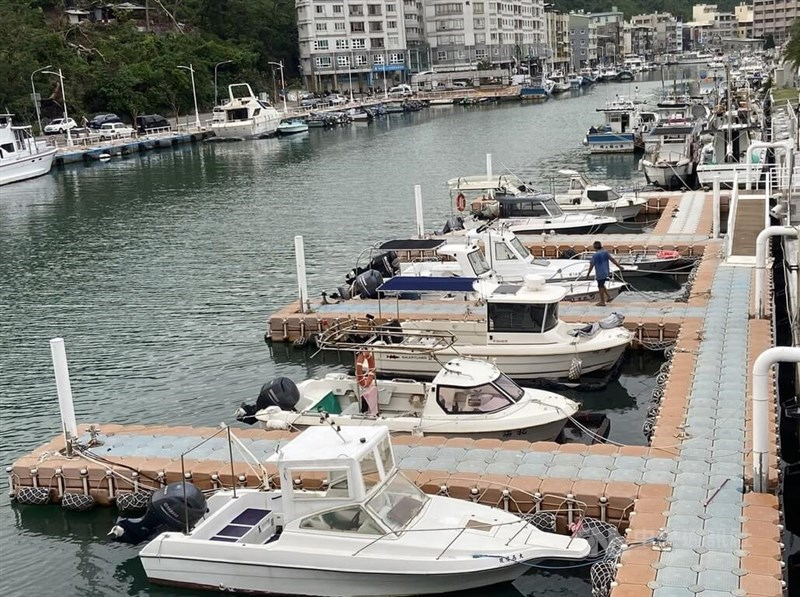After nearly a decade of legal battles, the family of Supriyanto—a 43-year-old Indonesian fisherman who died aboard the Taiwanese fishing vessel Fu Tsz Chiun in 2015—has finally reached a civil settlement with the ship’s captain and chief engineer. The case, long mired in procedural delays and questions of abuse, shines a light on the broader issue of migrant labor rights in Taiwan’s distant water fishing industry.
Background: The Tragic Death of Supriyanto
Supriyanto died on August 25, 2015, from septicemia, a condition caused by untreated infections. Allegedly beaten and denied medical treatment while aboard the Fu Tsz Chiun, his death was initially ruled “accidental” by the Pingtung District Prosecutors Office. However, video evidence and advocacy by labor rights organizations later contradicted this finding.
His case resurfaced as one of the most well-documented examples of abuse in Taiwan’s distant-water fishing industry, which employs thousands of migrant workers from Southeast Asia under often harsh and unregulated conditions.
Legal Developments: From Criminal Charges to Civil Settlement
In 2017, Taiwanese lawyer Tseng Wei-kai filed a criminal case against the captain, Chen Kai-chih, and the chief engineer, Chen Chin-piao. After years of stalled investigations, indictments were finally issued in 2023—charging the captain with negligent homicide and assault, and others, including a fellow Indonesian crew member, with abuse.
The civil settlement reached last week in the Pingtung District Court was the result of prolonged negotiations. Though the settlement amount remains undisclosed, the family—especially Supriyanto’s sister, Rusmiati—expressed relief that the years-long fight brought some form of justice.
The criminal case, however, remains ongoing and may be influenced by the civil outcome. A wanted notice remains for Munawir Sazali, another Indonesian crew member implicated in the abuse who fled Taiwan.
Key Issues Highlighted by This Case
1. Systemic Abuse in the Fishing Industry
Supriyanto’s death is not an isolated case. Labor groups like TIWA (Taiwan International Workers’ Association) have documented numerous instances of abuse, overwork, and wage theft aboard Taiwanese distant-water fishing vessels.
2. Lack of Translation and Communication
One reason Supriyanto’s abuse claims were ignored was a failure in translation. The Control Yuan later found that his complaints—recorded on video—were not properly translated and omitted from official records.
3. Legal Loopholes and Delays
The fact that it took eight years for a civil settlement—and longer for criminal indictments—illustrates significant flaws in how migrant worker abuse cases are handled in Taiwan. Cross-border testimony, inconsistent enforcement, and lack of coordination among legal bodies have all contributed to delays.
4. Role of NGOs
Without the persistence of organizations like TIWA, justice may never have been served. Their ability to support the family, bring witnesses from Indonesia, and sustain media attention was critical in pushing the case forward.
What This Means for Migrant Workers in Taiwan
While the settlement marks a step toward justice, it also underscores the need for systemic reforms. Taiwan has made recent strides in labor law, but distant-water fishing remains one of the least regulated sectors. This case could become a benchmark for future legal protections, depending on how Taiwanese courts and lawmakers respond.
The government must ensure:
- Mandatory independent translators during legal proceedings.
- Better health access for workers at sea.
- Stronger international monitoring of Taiwanese-flagged vessels.
- Transparency in recruitment processes handled by third-party brokers.
FAQs
Who was Supriyanto?
Supriyanto was a 43-year-old Indonesian migrant worker who died aboard the Taiwanese fishing vessel Fu Tsz Chiun in 2015 due to alleged abuse and medical neglect.
What was the outcome of the case?
His family reached a civil settlement with the ship’s captain and chief engineer in 2025. The criminal case is still ongoing.
What crimes are the crew accused of?
The captain was charged with negligent homicide and assault. Other crew members, including Indonesian nationals, were charged with physical abuse.
Why did the case take so long?
Legal delays were caused by language barriers, difficulty obtaining cross-border testimony, and initially dismissive rulings by prosecutors.
What impact will this case have?
It sets a precedent for holding shipowners accountable for the welfare of migrant workers and highlights the need for reforms in Taiwan’s fishing industry.


